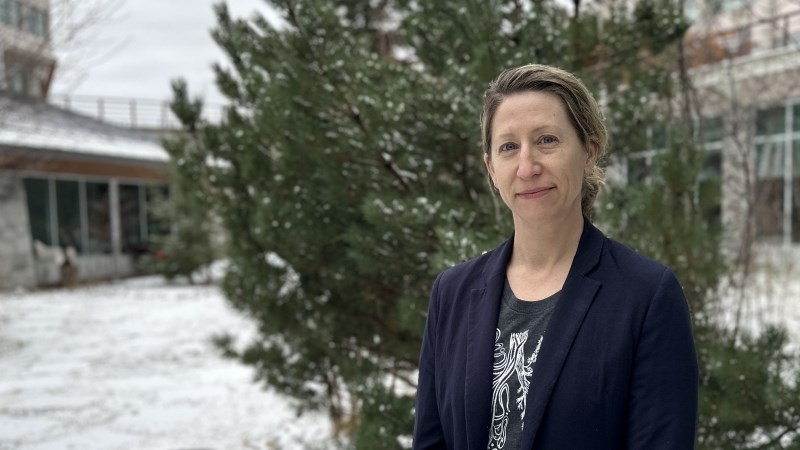A UNBC researcher and her team have been awarded a Natural Sciences and Engineering Research Council of Canada (NSERC) Alliance grant worth more than $1.5 million with partner in-kind contributions for a five-year project.
The study will be led by UNBC’s Prof. Lisa Wood and aims to unearth new insight into the effects of glyphosate-based herbicides (GBH) residues on ecosystem health.
The grant is a first for UNBC. The recently re-named the Alliance Society grant is only awarded to projects addressing significant societal challenges.
“This knowledge is urgently needed, given the large-scale use and persistence of GBH in the natural systems humans and wildlife rely on for high quality ecosystems services, like air and water quality, climate moderation and food sources,” said Wood.
“We’re focusing on how GBH influences gut bacteria and hormones in organisms in the ‘wild’ forest food web, which is a new direction as previous studies of this type have been conducted in more controlled settings.”
Composed of seven researchers, the team also includes Heather Bryan and Dezene Huber from UNBC; UBC-Okanagan researchers Deanna Gibson, Miranda Hart and Susan Murch; and Jeff Werner from the B.C. Ministry of Water, Land and Resource Stewardship.
“It was vital to have each member on this team as each brings their own expertise of specific taxa and/or analytical techniques,” Wood explains.
The researchers have partnered with the Swan River First Nation (a member of the Treaty 8 First Nations), the Alberta Trappers Association, the British Columbia Trappers Association and the British Columbia Wildlife Federation. As a result of many meetings over the past two years, Wood says each partner contributed to formulating the important questions to ask in the research project and determining which species would be important, relevant and rigorous to study.
“It was crucial to meaningfully incorporate each perspective,” said Wood. “As we will generate and transfer knowledge to our partners and to the public, who use the land to obtain food and medicines and to recreate.”
The grant will help to support at least nine graduate students, five undergraduate research students and three research technicians over the next five years, with studies ranging from examining soil microbes to investigating large vertebrates.
“The NSERC Alliance grant is a huge win for Lisa and her research team, and a reflection of the significant and impactful research being led by UNBC in strong collaboration with its partners,” says Vice President Research and Innovation Paula Wood-Adams.
“This team will generate new knowledge, while training young researchers in areas that are important to Canada and will help inform and guide partner organizations in their future policy and land use plans.”
Results from the project could act as a model for similar work in other ecosystems across the country and beyond.
“Canadians will benefit from the research conducted by better understanding the extent of the impact of GBH on forest systems,” said Wood.
“Our partner organizations will use this information to support their mandates and advocate for updates to policy, where warranted.”



